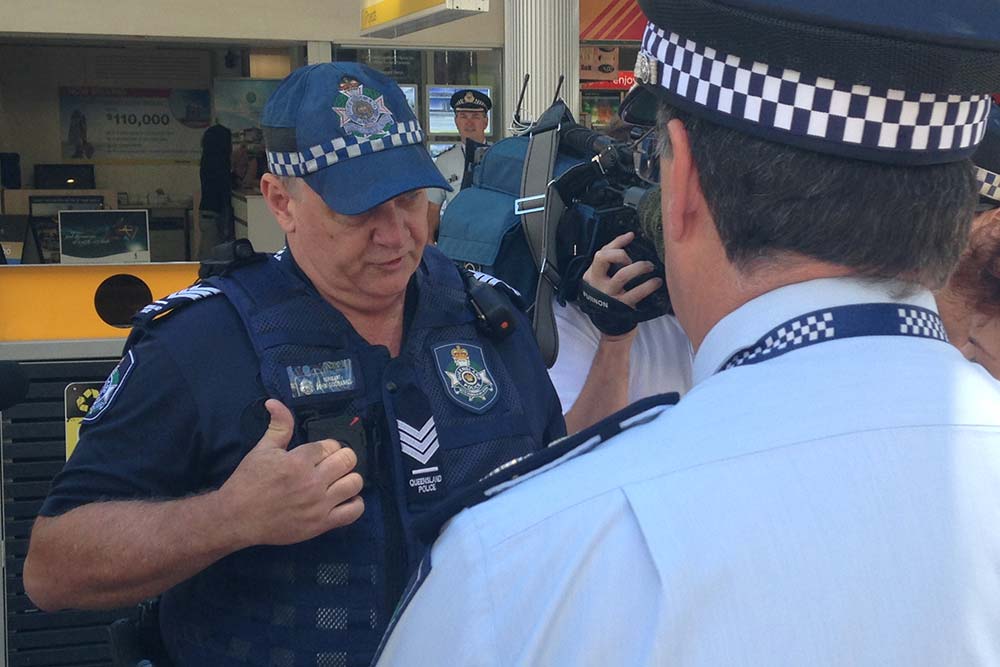
Body Worn Video expected to help policing become “easier and more efficient”. Image: Queensland Police Service.
The Queensland government has added ‘Body Worn Video’ (BWV) systems to the Queensland Police Service’s (QPS) arsenal of crime fighting tools by fitting frontline officers in the Gold Coast district with video cameras.
Under a Palaszczuk government investment of $6 million, the police force will roll out a fleet of this relatively new technology in order to make policing “easier and more efficient”.
The roll out is part of an action plan where the government will allocate 300 new BWV cameras to police officers working on the Gold Coast.
The district has become a hot spot of criminal activity that has caused significant “cultural and other policing issues” in the district, leading the Queensland Police Union to call it the “crime capital of Australia” in 2011.
Minister for Police Jo-Ann Miller said BWV would greatly assist frontline officers on the Gold Coast.
“The Gold Coast District is one of the busiest in Queensland with more than 1.5 million interactions between the police and the public here every year,” Ms Miller said.
She couldn’t resist making at jab at the former Campbell Newman government, accusing the Liberal National government of sitting “idly by” while police officers were left to purchase their own BWV cameras.
Instead she affirmed that the Palaszczuk government’s commitment to ensuring the safety of the state’s police.
Commissioner Ian Stewart said BWV would also provide greater reassurance to Queenslanders in their day-to-day dealings with officers.
“BWV greatly assists our officers in gathering evidence and dealing with complaints,” Mr Stewart said.
“Whether it’s the Road Policing Command or local general duties police, officers across Queensland will benefit from these cameras to capture evidence, create a record of operational activity and record their interactions with offenders and the general public.”
Mr Stewart said the use of evidence captured on BWV can lead to a reduction in the number of cases proceeding to court.
“For those that do [go to court], the clear and quality evidence captured by these cameras can help establish the identity of offenders,” Mr Stewart said.
Queensland police aren’t the only ones to be taking advantage of the technology in Australia.
In New South Wales, police have trialled the technology, and councils such as the City of Ryde and the City of Sydney have fitted their rangers with BWV as a way of capturing potentially violent or abusive commuters who have just been slugged with a parking ticket.





